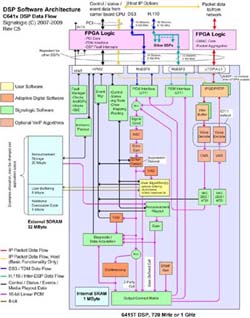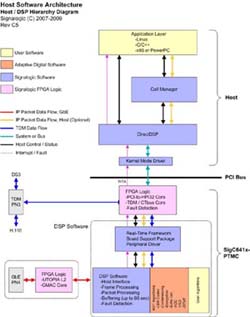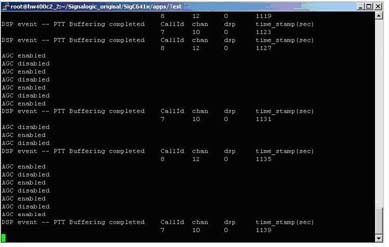
|
|
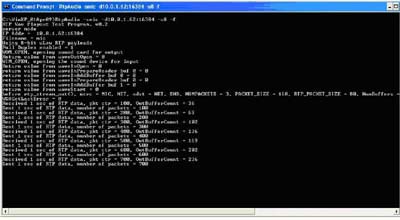
|
|
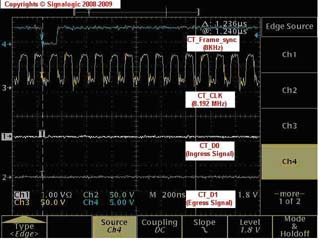
|
|
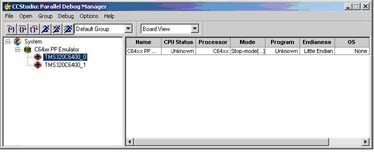
|
Real-Time Algorithm Framework (RTAF)
Voice, Video, and Encryption Software Framework
Overview
Features
Data Flow
Host Architecture
How to Purchase
Overview
RTAF provides a real-time framework for a wide range of voice and data algorithms. Analog and/or TDM data frame processing occurs in multiples of 10 msec, and packet data processing on arbitrary / fractional times between 10 and 90 msec (sometimes referred to as "ptime"). RTAF includes options for a wide variety of voice codecs, transcoding, ptime repacketizing, echo cancellation, DTMF detection, tone generation, AGC (and other signal conditioning), PTT and other types of buffering, UDP/IP packetization, call setup, frame relay, and fax relay. Call setup includes support for standard telephony interfaces, including on-hook and off-hook detection, ringing, and tone progress. Frame relay includes support for synchronous serial interfaces, such as RS-422. Fax relay is typically provided by a third-party vendor, for example ADT software supporting T.38 Group 3 fax. On Texas Instruments DSPs and CPUs, RTAF is implemented as a DSP/BIOS or SYSBIOS priority software task, initiated by one of several user-selectable hardware interrupt types (single sample, buffer full, DMA buffer full, or other GPIO signal).Features
- real-time framework for TDM and IP channels
- max 128 ch TDM, 128 ch IP, 128 ch H.110,in any combination
- host interface and API for multi-DSP interface, compatible with DirectDSP software
- framework accepts drop-in Adaptive Digital algorithms (such as AGC, DTMF, ec, conf, LBR codecs, encryption, etc)
- G711 and UDP/RTP API
- example CCS projects and source code including DSP/BIOS and L2 cache (if applicable to DSP device)
- CTbus TDM interface via McBSP0 "-H.110 TDM and inter-DSP communication via McBSP1 interface via McBSP1"
- can be used with or without JTAG and RTDX debug tools
- no requirement for ADT or other 3rd-party host interface
- integration of Adaptive Digital or other vendor algorithms is straight forward, for example using the SigC641x card we have tested MELPe with the framework, including bitrates 600, 1200, 2400, and 4000 bps. We've also tested the framework and SigC641x card combination with various ec, conferencing, and RTP/RTCP/TBCP algorithms
- no dependence on JTAG, RTDX or other slow and "code modifying" means of debug and/or data transfer to/from the host
- full control over DMA channels and other DSP chip aspects that affect reliability and transfer rate of the HPI (host interface)
- includes easily accessible and modifiable initialization of TDM, GbE, and other peripherals
- third-party debug issues are clearly divided between algorithms on one side, and host interface, transfer rates,and framework on the other side
Data Flow
- Real-time, frame-based voice and video processing. Algorithms "drop in" as needed into a well-defined structure, with basic data flow as shown below:
|
|
Host Architecture
- Supports XDAIS-compliant algorithms
- Compatible with Adaptive Digital (ADT) algorithms
- Supports host software (x86 and PPC) DirectDSP and Call Manager APIs:
|
|




